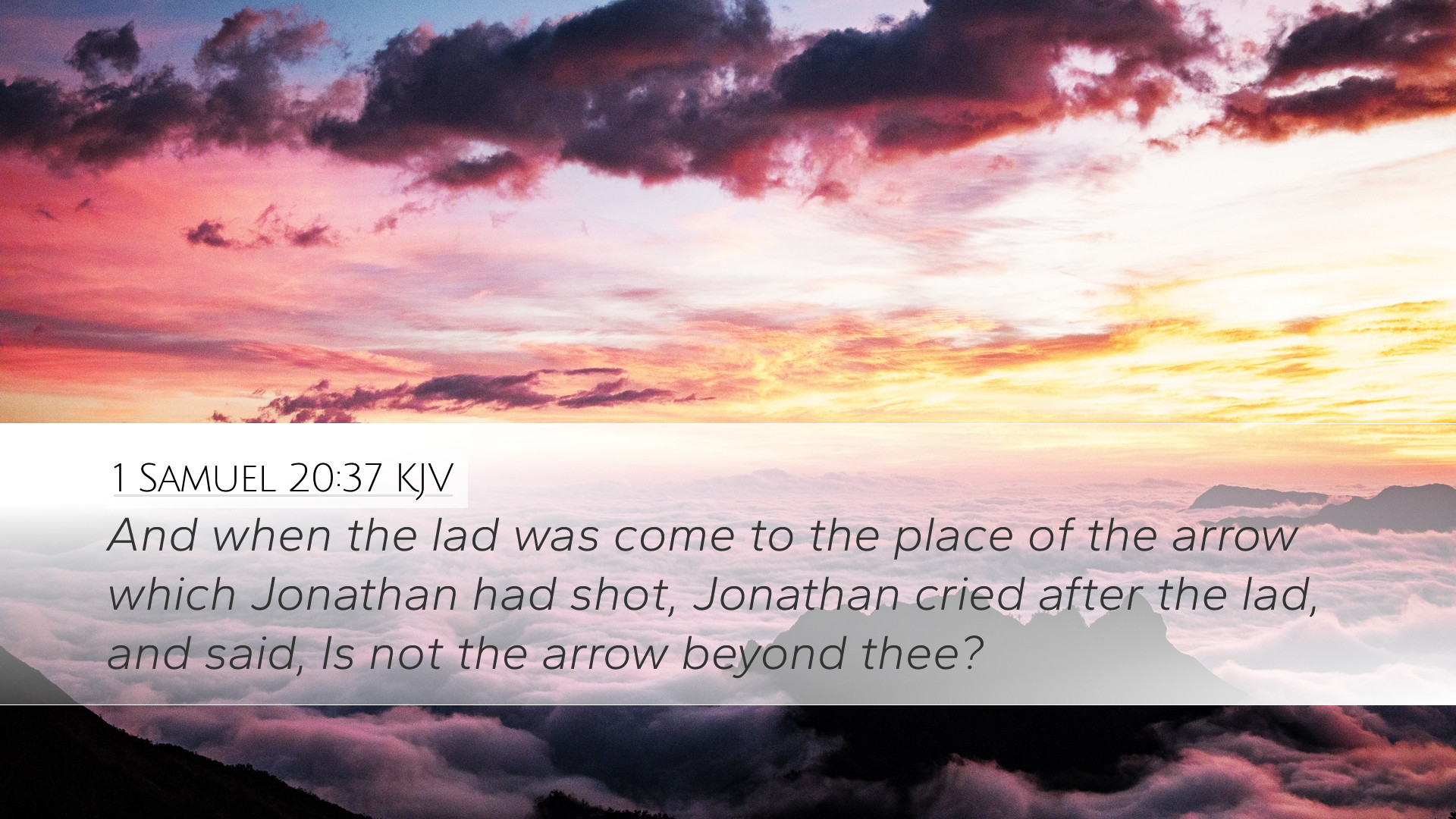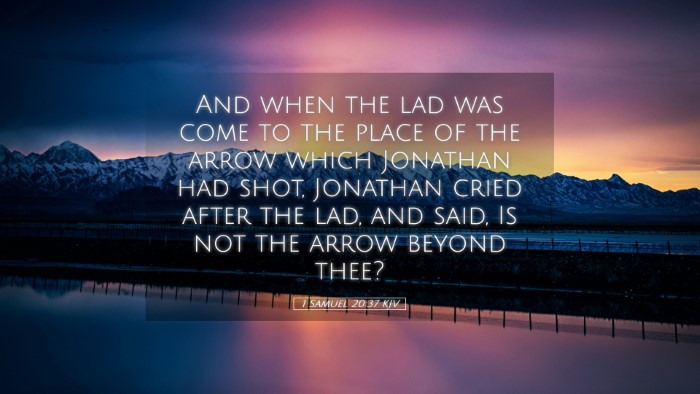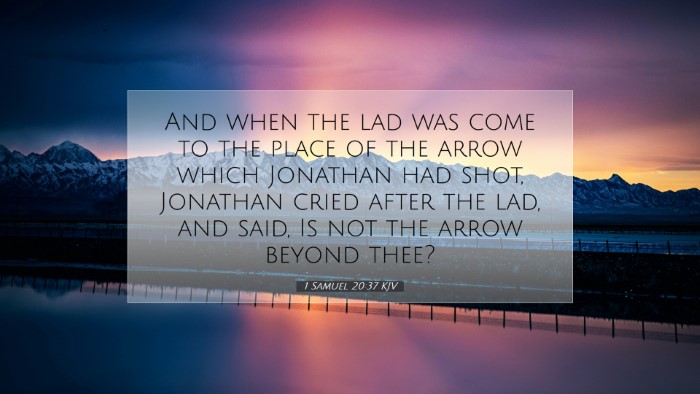Commentary on 1 Samuel 20:37
Verse Context: 1 Samuel 20:37 records a significant moment in the narrative of David and Jonathan. This verse occurs within the framework of their deep friendship and the growing conflict between David and King Saul. The moment encapsulates the themes of loyalty, friendship, and the impending royal conflict.
Text of 1 Samuel 20:37
"And when the lad was come to the place of the arrow which Jonathan had shot, Jonathan cried after the lad, and said, Is not the arrow beyond thee?"
Historical Background
This verse highlights Jonathan's strategic communication with David while simultaneously upholding his loyalty to him against his father's will. In the narrative, Jonathan takes on the role of a mediator, attempting to keep David informed of Saul's intentions without putting either of them in direct danger.
Commentary Insights
Matthew Henry's Commentary
According to Matthew Henry, this verse embodies the ingenious method Jonathan employed to relay crucial information to David. The act of shooting arrows and sending a boy to retrieve them was a clever signal. This method exemplifies Jonathan's wisdom in maintaining their covenant while also acknowledging the tension with Saul. Henry emphasizes the emotional weight of the moment, noting the deep sorrow that must have accompanied these actions, as Jonathan recognized the consequences of Saul's dislike for David.
Albert Barnes' Notes
Albert Barnes elaborates on the significance of the arrows in this verse. The phrase "the arrow beyond thee" illustrates the deepening distance between Jonathan and his father while also highlighting his commitment to David. Barnes underscores the importance of symbols in communication, indicating that the arrows served as a metaphor for the barriers that now lay between David and a once friendly court. He suggests that the symbolic act is not just physical but indicates the broader spiritual separation that is developing as God's anointing on David becomes clearer.
Adam Clarke's Commentary
Adam Clarke provides a detailed exploration of the cultural significance behind the act of shooting an arrow. He notes that in the context of ancient Near Eastern customs, such signals were often employed for covert communications. Clarke emphasizes the intentionality with which Jonathan prepares his message. He recognizes that the use of a lad signifies both a protective measure and an action that maintains plausible deniability. Clarke sees this as a pivotal moment that confirms the depth of Jonathan’s loyalty, almost prophetic in nature, as he facilitates David’s future leadership against his own father’s wishes.
Theological Reflections
The theological implications of this verse extend beyond mere narrative. It illustrates the tension between divine purpose and human authority. Jonathan’s willingness to place himself at odds with Saul for the sake of covenant loyalty towards David manifests a significant theological truth: the essence of true friendship often demands sacrifice. Their bond reflects the ideal of self-sacrificial love depicted throughout Scripture.
Applications for Pastors and Scholars
- Covenant Friendships: The relationship between David and Jonathan is a profound example of covenant friendship. Pastors can draw from this narrative when teaching about commitment and loyalty in friendships.
- Effective Communication: The strategic communication methods exemplified by Jonathan provide valuable lessons in effective and wise communication in ministry contexts.
- Navigating Conflict: This story poses significant questions about loyalty to God versus loyalty to authority. In the modern context, it encourages discussions on ethical dilemmas and integrity in leadership.
- Emotional Intelligence: Understanding the emotional stakes for both Jonathan and David can enrich one’s approach to pastoral care, emphasizing the importance of empathy and compassion in ministry.
Conclusion
1 Samuel 20:37 is a pivotal verse that not only reveals the dynamics of the friendship between David and Jonathan but also highlights significant theological and practical realities for today’s readers. Through the insights provided by public domain commentaries, one can appreciate the intricacies of human relationships in the light of divine election and the calling to serve God faithfully, even amidst opposition.


